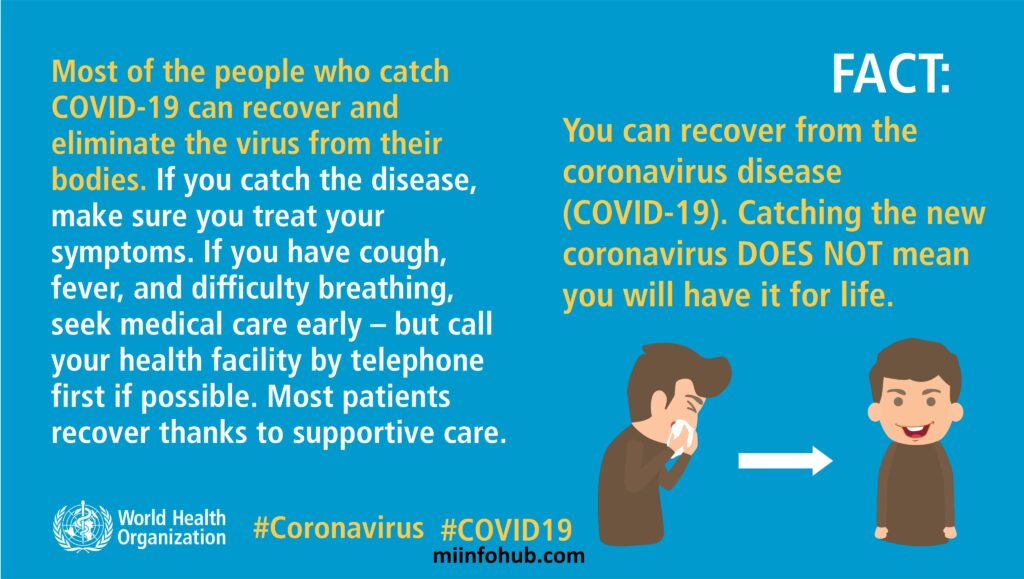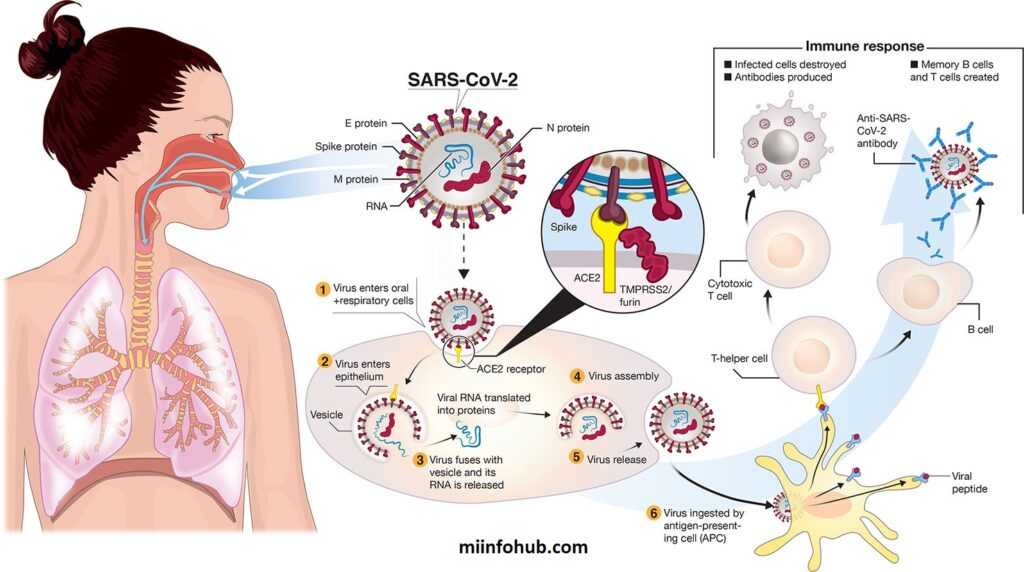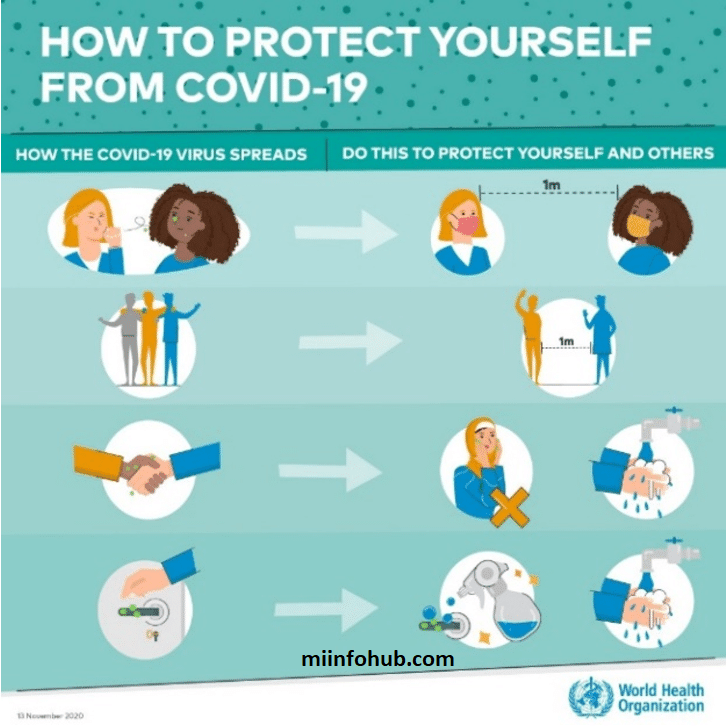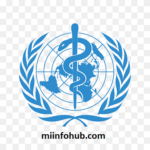Navigating Your Recovery Journey: Steps On How To Recover From COVID-19
Recovering from COVID-19 requires careful attention. This comprehensive guide on How To Recover From COVID-19 offers essential steps for a smooth recovery. First, prioritize rest and sleep; your body needs time to heal. Stay hydrated and eat nutritious foods to boost your immune system. Gradually return to physical activity by starting with light exercises and listening to your body. Mental health is important too—seek support if you’re feeling overwhelmed. Follow up with your healthcare provider, who can monitor your recovery and address any lingering symptoms. Use this guide to navigate your path to wellness.

What Is Covid-19?
COVID-19 is an infectious disease caused by the SARS-CoV-2 virus, first identified in Wuhan, China, in December 2019. It spreads mainly through respiratory droplets and can cause symptoms like fever, cough, and fatigue. Diagnosis typically involves PCR or rapid antigen tests. Preventive measures include vaccination, wearing masks, and practicing good hygiene. The pandemic has had significant global health and societal impacts.

Understanding Post-COVID Conditions
Post-COVID conditions, often referred to as “long COVID,” can affect individuals who are trying to understand how to recover from COVID-19. These lingering symptoms may persist for weeks or even months after the initial infection. Common issues include fatigue, shortness of breath, and brain fog, impacting even those who experienced mild symptoms. While the exact causes are still under investigation, they may involve ongoing inflammation or immune system complications. To effectively manage these conditions, a multidisciplinary approach is often necessary, supporting individuals in their journey to regain their health and wellness.

Recognizing Symptoms During Recovery
During recovery from COVID-19, individuals may experience various symptoms that can indicate lingering effects. Common symptoms include fatigue, persistent cough, shortness of breath, headaches, and muscle aches. Some may also experience cognitive issues, like memory problems or difficulty concentrating, often referred to as “brain fog.” Understanding how to recover from COVID-19 involves monitoring these symptoms and seeking medical advice if they worsen or if new symptoms arise, as this can help manage recovery and prevent complications.
Rest And Sleep: Essential For Healing
Rest and sleep are crucial for recovery from COVID-19. Understanding how to recover from COVID-19 requires adequate rest, as it allows the body to heal, rebuild immune strength, and fight off lingering symptoms. During sleep, the body undergoes essential repair processes that aid in recovering respiratory function and overall well-being. Prioritizing good sleep hygiene, such as maintaining a consistent sleep schedule and creating a comfortable sleep environment, can significantly enhance recovery. Taking breaks during the day and listening to the body’s signals for rest can further support the healing process.
Nutrition And Hydration For Recovery
Understanding how to recover from COVID-19 involves maintaining proper nutrition and hydration, both of which are vital for a smooth recovery. A balanced diet rich in vitamins, minerals, and antioxidants supports immune function and promotes healing. Foods high in protein, such as lean meats, beans, and nuts, aid in tissue repair and muscle recovery. Hydration is equally important, as fluids help maintain essential body functions and prevent fatigue. Drinking water, herbal teas, and broths can keep the body hydrated. Incorporating fruits and vegetables provides key nutrients and boosts energy, making it easier to overcome fatigue and regain strength during the recovery process.
Gradual Return To Physical Activity
Learning how to recover from COVID-19 requires a gradual return to physical activity. Begin with light movements such as walking or gentle stretching to restore strength and stamina without overexerting yourself. It’s important to listen to your body, watching for any signs of fatigue or discomfort. Slowly increase your activity level as your endurance improves. Always consult a healthcare professional before engaging in intense exercise, especially if you had severe symptoms. Taking a measured approach helps promote a safe recovery and reduces the risk of complications.
Mental Health Support And Resources
Recovering from COVID-19 can significantly impact mental health. Feelings of anxiety, depression, or stress may arise due to illness, isolation, or uncertainty about the future. It’s essential to seek mental health support during this time. Consider talking to a mental health professional for guidance and coping strategies. Many organizations offer resources such as hotlines, support groups, and online therapy. Engaging in activities that promote well-being, like mindfulness, journaling, or connecting with loved ones, can also help. Remember, prioritizing mental health is as important as physical recovery, and support is available.
Follow-Up Care And Medical Checkups
After recovering from COVID-19, follow-up care is crucial for monitoring ongoing health. Schedule medical checkups to assess lung function, heart health, and any lingering symptoms. Your healthcare provider may recommend tests to evaluate recovery and identify any post-COVID conditions. It’s important to discuss any new or persistent symptoms during these visits. Regular follow-ups help ensure a complete recovery and allow for timely interventions if necessary. Staying proactive about your health post-COVID-19 is essential for a smooth recovery journey.
Managing Persistent Symptoms
Managing persistent symptoms after COVID-19, often referred to as “long COVID,” involves a comprehensive approach. Many individuals experience lingering effects such as fatigue, shortness of breath, or brain fog. To address these symptoms, it’s essential to work closely with healthcare professionals who can provide tailored treatment plans. Lifestyle modifications, including pacing daily activities, engaging in gentle exercises, and practicing relaxation techniques, can be beneficial. Additionally, support groups or therapy may help individuals cope with emotional challenges. Staying informed about ongoing research and treatment options can empower patients in managing their recovery effectively.
How To Recover From COVID-19: Vaccination After Recovery
Vaccination after recovering from COVID-19 is crucial for enhancing immunity and protecting against reinfection. Individuals who have had COVID-19 should still receive the vaccine, as it can provide additional protection and help reduce the severity of future infections. Health authorities recommend waiting until full recovery and any acute symptoms have resolved before getting vaccinated. The timing may vary based on personal health conditions and local guidelines, so consulting a healthcare provider for personalized advice is essential. Vaccination not only aids in individual protection but also contributes to broader public health efforts by reducing virus transmission within communities.
Long-Term Health Monitoring
How to Recover from COVID-19 involves prioritizing long-term health monitoring to maintain well-being. Many individuals experience lingering symptoms, known as post-acute sequelae of SARS-CoV-2 infection (PASC), which can affect various body systems. Regular follow-up appointments with healthcare providers are crucial for identifying and managing these symptoms, such as fatigue, respiratory issues, and neurological problems. This process may include physical exams, lab tests, and mental health assessments to address any complications. A personalized care plan ensures a smoother recovery journey and improves overall health.


